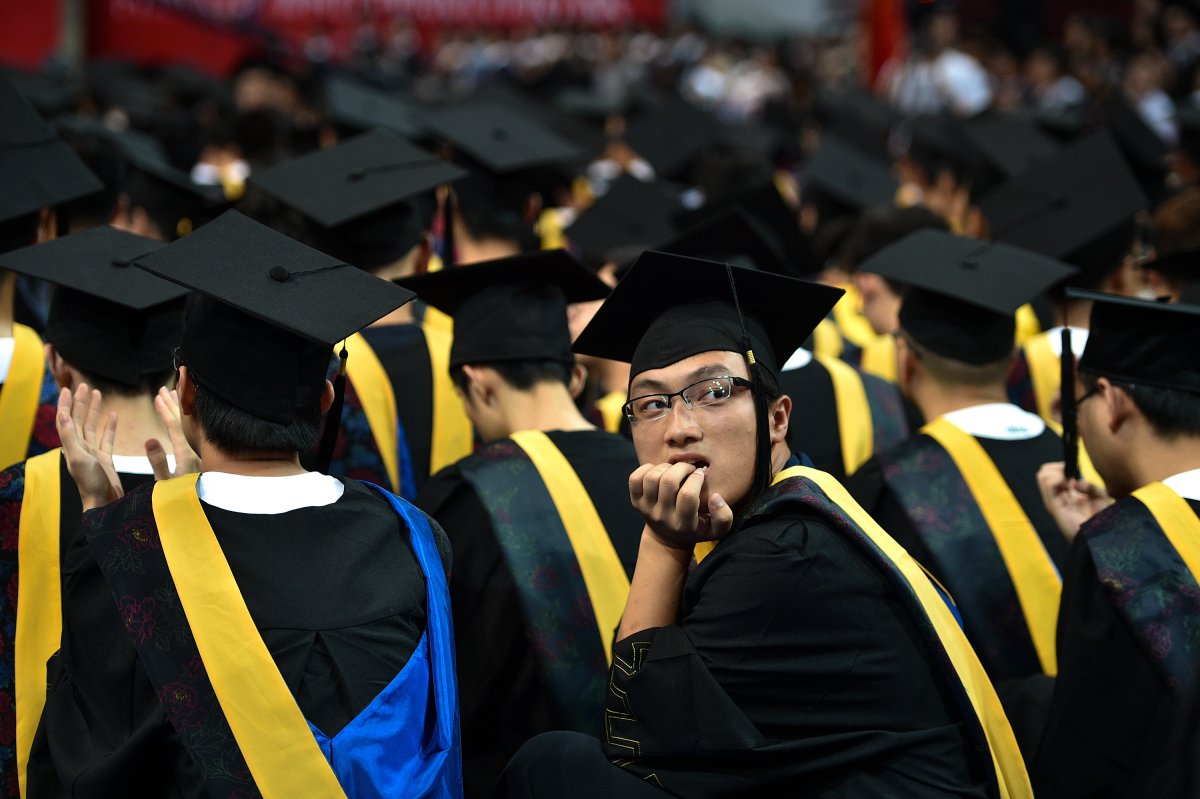China slashed its high youth unemployment by nearly a third this month—at least on paper.
However, some experts say the government's new methodology, which follows a half-year moratorium on publishing this data, does little more than whitewash a systemic problem. One told Newsweek removing students from the sample is what caused the drop.
Though Beijing reported last week it had hit its stated goal of at least 5 percent GDP growth in 2023, the world's second-largest economy faces major headwinds in the long term. These include an aging workforce, declining foreign investment, a property market slump, and lower global demand for exports.
The Chinese statistics bureau reported last week that unemployment among the 16- to 24-year-old demographic was 14.9 percent in December.
This would be a considerable improvement over the 21.3 percent reported for that age bracket last June, compared to 5.2 percent for the general population.
China's statistics bureau didn't immediately return Newsweek's request for comment.
Does this paint a rosier picture for the over 11 million university students expected to graduate this year?
Not so fast, said Elliott Fan, graduate director of National Taiwan University's Department of Economics. "The decline [in unemployment] was caused by China's National Statistics Bureau removing students from the sample, not because of any solid improvement in the youth's labor market," he told Newsweek Friday.
Fan listed three more swaths of society whose exclusion further throws the data into doubt.
- Those working as little as one hour per week were still considered to be employed, which "does not accord to international standards for calibrating unemployment rate."
- The report excluded people who, discouraged by dim job prospects, have given up.
- The statistics bureau surveyed only those living in urban areas.
This suggests a crisis that is here for the long-haul, Fan said. "The Chinese government does not have any powerful tool to address unemployment, even if they want to. The surging unemployment is going with the adverse macroeconomic shocks, which are structural and likely long-lasting."
Young adults are hit particularly hard during times of economic malaise, as they have less work experience.
The COVID-19 pandemic dealt them a blow, especially in the service sector, which tends to hire a higher proportion of young workers, Goldman Sachs researcher Maggie Wei pointed out in a report last May shortly before China stopped publishing related data.
With the end of China's rigid, years-long "zero-COVID" regulations last January, economists predicted the resulting uptick in labor demand might knock 3 percentage points off the youth unemployment rate.
However, these modest gains were at risk of being canceled out by the coming surge of graduates that summer, Wei's report said.
The biggest beneficiary of the new reporting methodology is the Chinese Communist Party leadership, Steve Tsang, director of SOAS University of London's China Institute, told Newsweek Friday.
The new statistics "support the Party's narrative of China's economy and society, and thus unite the country to pursue the 'China Dream' as Xi directs," Tsang said.
Yet, "Just making statistics more patriotic will not help the economy to recover its lost momentum," he added.
Tsang said the most effective way to stimulate the economy would be to put money in the hands of those most likely to spend it—which, in China, is Gen Z.
However, Xi has eschewed this in favor of a state-directed approach to investment, from industry to infrastructure, Tsang said.
"Money is not directed to the consuming public. It is not even directed to services like health and medical care and the social safety net, which can reduce the relatively poorer population to save for medical and other contingencies."
Other factors frustrating young jobseekers include Xi Jinping's crackdown on big tech and private education—both also sectors that were once surer bets for young workers, Northwestern University economics professor Nancy Qian wrote in October.
Last spring, the State Council, China's rough equivalent to a cabinet, announced steps meant to stabilize unemployment.
Among these were plans to open up least 1 million internships, support recruiting by state-owned enterprises, and offer one-time subsidies to firms that hire registered unemployed who are in the 16 to 24 age bracket.

Uncommon Knowledge
Newsweek is committed to challenging conventional wisdom and finding connections in the search for common ground.
Newsweek is committed to challenging conventional wisdom and finding connections in the search for common ground.
About the writer
Micah McCartney is a reporter for Newsweek based in Taipei, Taiwan. He covers U.S.-China relations, East Asian and Southeast Asian ... Read more





